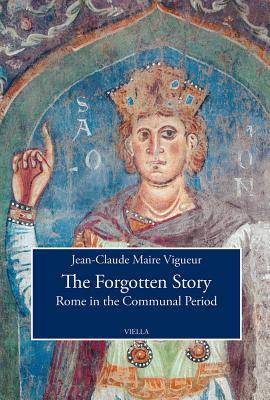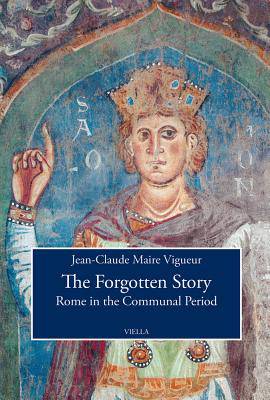
- Afhalen na 1 uur in een winkel met voorraad
- Gratis thuislevering in België vanaf € 30
- Ruim aanbod met 7 miljoen producten
- Afhalen na 1 uur in een winkel met voorraad
- Gratis thuislevering in België vanaf € 30
- Ruim aanbod met 7 miljoen producten
Zoeken
€ 93,45
+ 186 punten
Omschrijving
Hidden by the ancient city and by the extravagances of the baroque period, medieval Rome has for long suffered undeserved discredit. From the time of the Renaissance, the prevailing image of Rome was of a city sunk in neglect amidst the scattered ruins of antiquity. Numerous observers took pleasure in stressing the greed, narrowness of spirit and ignorance of medieval Romans and in contrasting their supposed failings with the heroic virtues of their distant forebears. However, the Eternal City and its inhabitants merit a far different approach. Medieval Rome needs to be studied anew and to be seen as an equal to the other great cities of communal Italy: Florence, Milan and Venice. This is the challenging task which Jean-Claude Maire Vigueur undertook in writing this book which brings to life the largely unknown city of the 12th, 13th and 14th centuries. This broad-ranging study tells the story of Rome during the communal period: barons rub shoulders with leaders of the people, great landowners with agricultural labourers, rich merchants with cardinals and artists, against a backdrop of ancient architectural remains, of medieval farms, of gorgeous religious ceremonies and of unrestrained local festivals. The book provides a detailed and engaging picture which, eschewing cliches and preconceptions, recaptures the Middle Ages in all its colours.
Specificaties
Betrokkenen
- Auteur(s):
- Uitgeverij:
Inhoud
- Aantal bladzijden:
- 402
- Taal:
- Engels
Eigenschappen
- Productcode (EAN):
- 9788867280889
- Verschijningsdatum:
- 15/10/2015
- Uitvoering:
- Hardcover
- Formaat:
- Genaaid
- Gewicht:
- 317 g

Alleen bij Standaard Boekhandel
+ 186 punten op je klantenkaart van Standaard Boekhandel
Beoordelingen
We publiceren alleen reviews die voldoen aan de voorwaarden voor reviews. Bekijk onze voorwaarden voor reviews.











